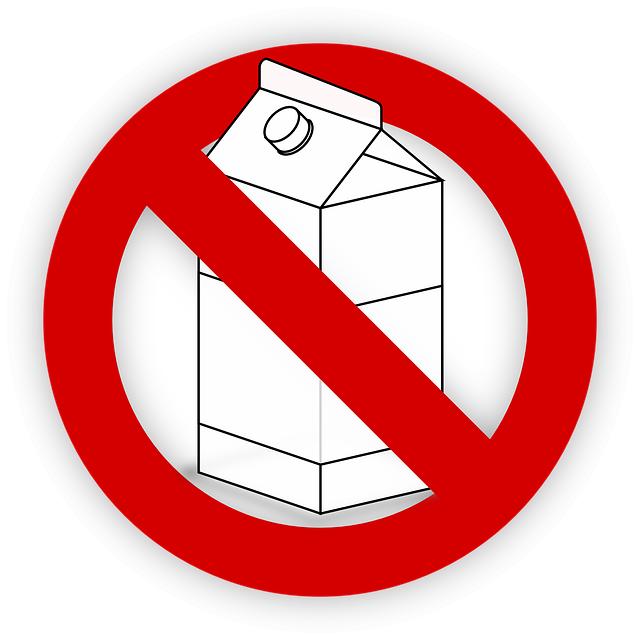Is Potassium Lactate Bad for You? The Preservatives
Are you curious about the potential effects of potassium lactate on your health? Join us as we dive into the facts about this common food preservative. Let’s separate fact from fiction and discover whether potassium lactate is truly bad for you.
Contents
- Introduction to Potassium Lactate
- Benefits of Potassium Lactate in Food Preservation
- Potential Health Concerns of Consuming Potassium Lactate
- Understanding the Role of Preservatives in Food
- Mythbusting: Separating Facts from Fiction about Potassium Lactate
- Safe Dosage and Usage Recommendations for Potassium Lactate
- How to Avoid Overconsumption of Potassium Lactate
- Alternate Natural Preservatives to Consider Instead of Potassium Lactate
- In Conclusion
Introduction to Potassium Lactate
Potassium lactate is a natural mineral salt that is commonly used as a preservative in food products. It is derived from lactic acid, which is a naturally occurring acid found in dairy products such as yogurt and cheese. Potassium lactate is a highly effective preservative, as it helps to inhibit the growth of harmful bacteria and extend the shelf life of food products.
Despite its effective preservative properties, potassium lactate is generally recognized as safe by the Food and Drug Administration (FDA). It is commonly used in a variety of food products, including meat, poultry, and seafood. Additionally, potassium lactate is also used as a flavoring agent and acidity regulator in certain foods.
While some people may have concerns about consuming preservatives, potassium lactate is considered to be safe for most individuals when consumed in moderation. Like any food additive, it is important to be mindful of the amount consumed and to maintain a balanced diet. Ultimately, potassium lactate plays a valuable role in preserving food products and ensuring their safety for consumption.
Benefits of Potassium Lactate in Food Preservation
Potassium lactate is a natural ingredient that is commonly used in food preservation due to its numerous benefits. This preservative helps to extend the shelf life of foods by inhibiting the growth of bacteria, mold, and yeast. It is also effective at controlling the growth of pathogens such as Listeria, making it a crucial component in ensuring food safety.
One of the main advantages of potassium lactate is its ability to enhance the flavor and texture of food products. It can help to improve the overall quality of meats, poultry, and seafood by retaining moisture and preventing product shrinkage. Additionally, potassium lactate is a versatile ingredient that can be used in a wide range of food products, from deli meats to baked goods.
Overall, potassium lactate is a safe and effective preservative that offers numerous benefits for food preservation. When used properly, this ingredient can help to extend the shelf life of foods, improve their quality, and enhance their safety for consumption.
Potential Health Concerns of Consuming Potassium Lactate
Potassium lactate is a commonly used preservative in various food products, but like any food additive, it comes with its own set of potential health concerns. While potassium lactate is generally recognized as safe by the FDA, there are still some things to consider when consuming this ingredient.
One potential concern of consuming potassium lactate is its high sodium content. This can be problematic for individuals who need to watch their sodium intake due to health reasons such as high blood pressure or kidney issues. It’s important to be mindful of the overall sodium levels in your diet if you consume products containing potassium lactate.
Additionally, some studies suggest that high intake of potassium lactate may be linked to gastrointestinal issues such as bloating, gas, and diarrhea. If you experience any of these symptoms after consuming products with potassium lactate, it may be worth considering reducing your intake or switching to products with alternative preservatives.

Understanding the Role of Preservatives in Food
When it comes to , one common ingredient that often raises questions is potassium lactate. This preservative is commonly used to extend the shelf life of food products, particularly meats and poultry. While some people may be concerned about the potential health effects of potassium lactate, it is important to note that the FDA has deemed it safe for consumption in the amounts typically found in food.
One of the main benefits of using potassium lactate as a preservative is its ability to inhibit the growth of harmful bacteria, such as Listeria monocytogenes. This can help to prevent foodborne illnesses and ensure that the food remains safe for consumption. Additionally, potassium lactate can also help to maintain the texture and flavor of the food product, making it a popular choice among food manufacturers.
Mythbusting: Separating Facts from Fiction about Potassium Lactate
The Truth About Potassium Lactate
There are many misconceptions floating around about potassium lactate, a common preservative used in food products. Let’s separate fact from fiction and dive into the truth about this ingredient:
- Myth: Potassium lactate is harmful to your health.
- Myth: Potassium lactate is a chemical additive.
- Myth: Potassium lactate is only used in processed foods.
Fact: Potassium lactate is FDA-approved and safe for consumption. It is commonly used in food preservation to extend shelf life and prevent bacterial growth.
Fact: While potassium lactate is a chemical compound, it is naturally occurring in many foods such as fruits and dairy products. It is also a byproduct of lactic acid fermentation.
Fact: Potassium lactate is not only found in processed foods but also in meats, poultry, and seafood. It helps improve texture, flavor, and overall quality of these products.

Safe Dosage and Usage Recommendations for Potassium Lactate
When it comes to using potassium lactate as a preservative, it is important to follow safe dosage and usage recommendations to ensure that you are not consuming harmful levels of the ingredient. Potassium lactate is generally recognized as safe by the FDA, but it is still important to use it responsibly.
- Recommended Dosage: The recommended dosage of potassium lactate varies depending on the specific product and its intended use. It is important to follow the instructions provided on the packaging or by your healthcare provider.
- Usage Recommendations: Potassium lactate is commonly used in food products to extend shelf life and prevent spoilage. When using products containing potassium lactate, it is important to consume them within the recommended timeframe to ensure freshness and safety.
| Recommended Dosage | Usage Recommendations |
|---|---|
| Follow instructions provided | Consume within recommended timeframe |

How to Avoid Overconsumption of Potassium Lactate
Potassium lactate is commonly used as a preservative in various food products due to its ability to extend shelf life. However, it is important to be mindful of your intake to prevent potential health risks associated with overconsumption. Here are some tips to help you avoid consuming too much potassium lactate:
- Read food labels carefully to identify products containing potassium lactate.
- Avoid consuming processed foods that are high in preservatives.
- Opt for fresh fruits and vegetables instead of canned or packaged foods.
It is essential to maintain a balanced diet and be aware of the ingredients in the foods you consume to prevent overconsumption of potassium lactate. While it is generally recognized as safe by the FDA, excessive intake may lead to potential health issues. By making conscious choices and opting for natural, whole foods, you can reduce your exposure to preservatives like potassium lactate.

Alternate Natural Preservatives to Consider Instead of Potassium Lactate
When it comes to finding alternative natural preservatives to potassium lactate, there are several options to consider. These alternatives can provide the same preservative properties without the potential concerns associated with potassium lactate. Here are a few natural preservatives to consider:
- Rosemary Extract: Known for its antioxidant properties, rosemary extract is a natural preservative that can help extend the shelf life of food products.
- Citric Acid: Citric acid is commonly used as a preservative in food and beverage products. It acts as an antioxidant and can help prevent spoilage.
- Vitamin E: Vitamin E is a natural antioxidant that can help prevent the oxidation of fats and oils in food products, thereby extending their shelf life.
These alternatives can be just as effective as potassium lactate in preserving food products, without the potential concerns that some may have about the safety of potassium lactate. By exploring these natural preservatives, you can make informed choices about the ingredients you use in your food products.
In Conclusion
In conclusion, potassium lactate is commonly used as a preservative in food products, but is it bad for you? The answer is, not necessarily. While some may be concerned about its potential effects on health, research suggests that potassium lactate is generally safe to consume in moderate amounts. As with any food additive, it’s important to be mindful of your overall intake and to prioritize a balanced diet. So next time you see potassium lactate listed on a label, rest assured knowing that it’s likely not something to be alarmed about. As always, listen to your body and make choices that align with your unique needs and preferences. Happy eating!







